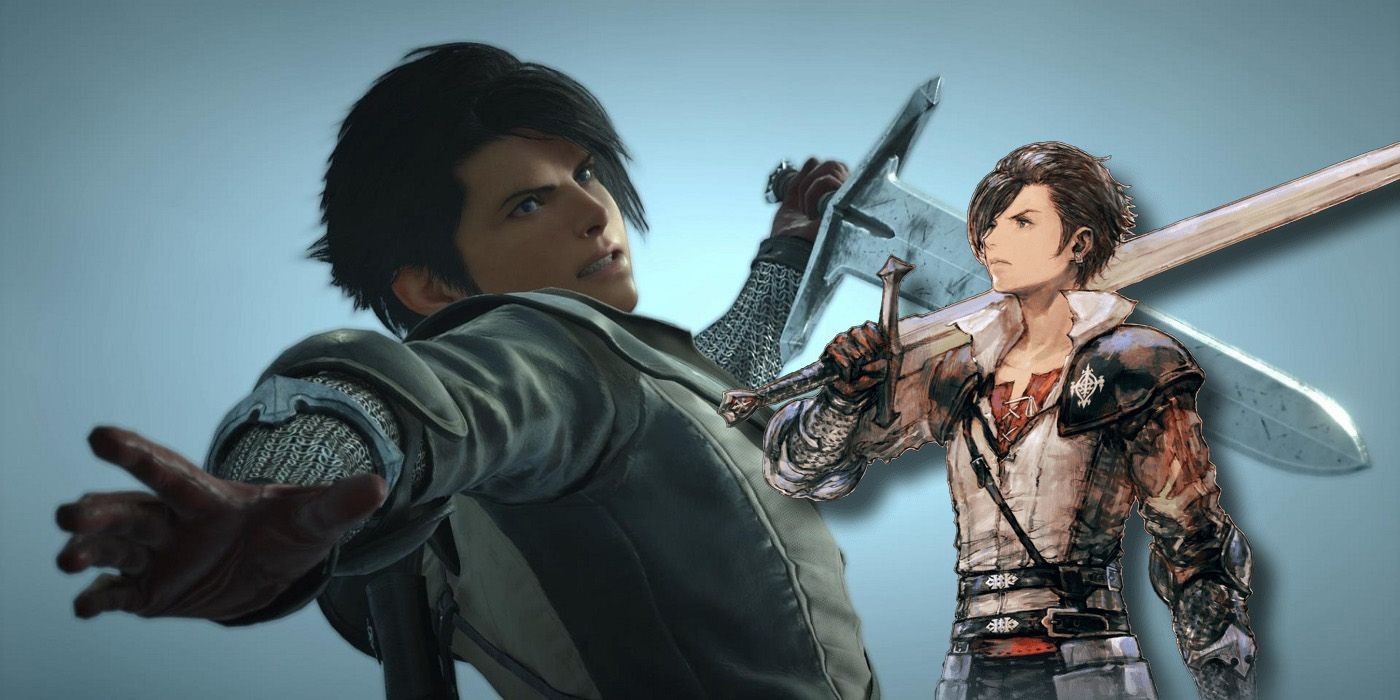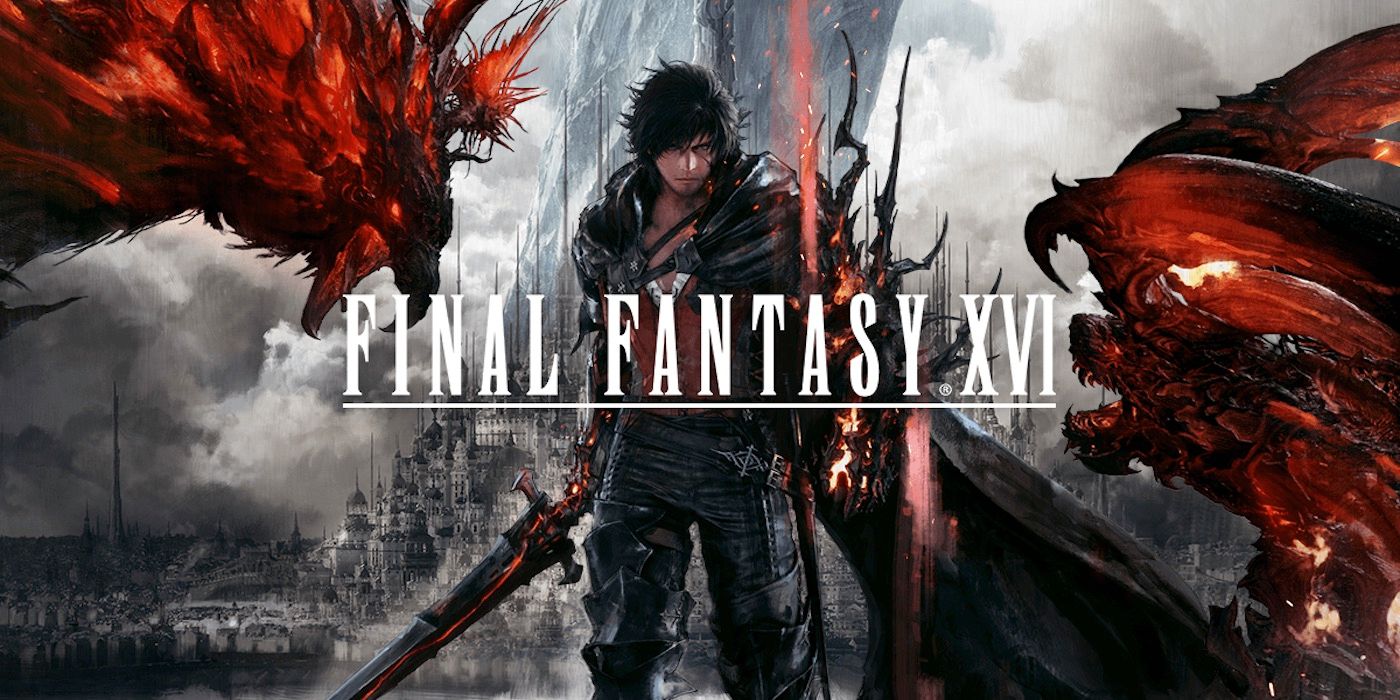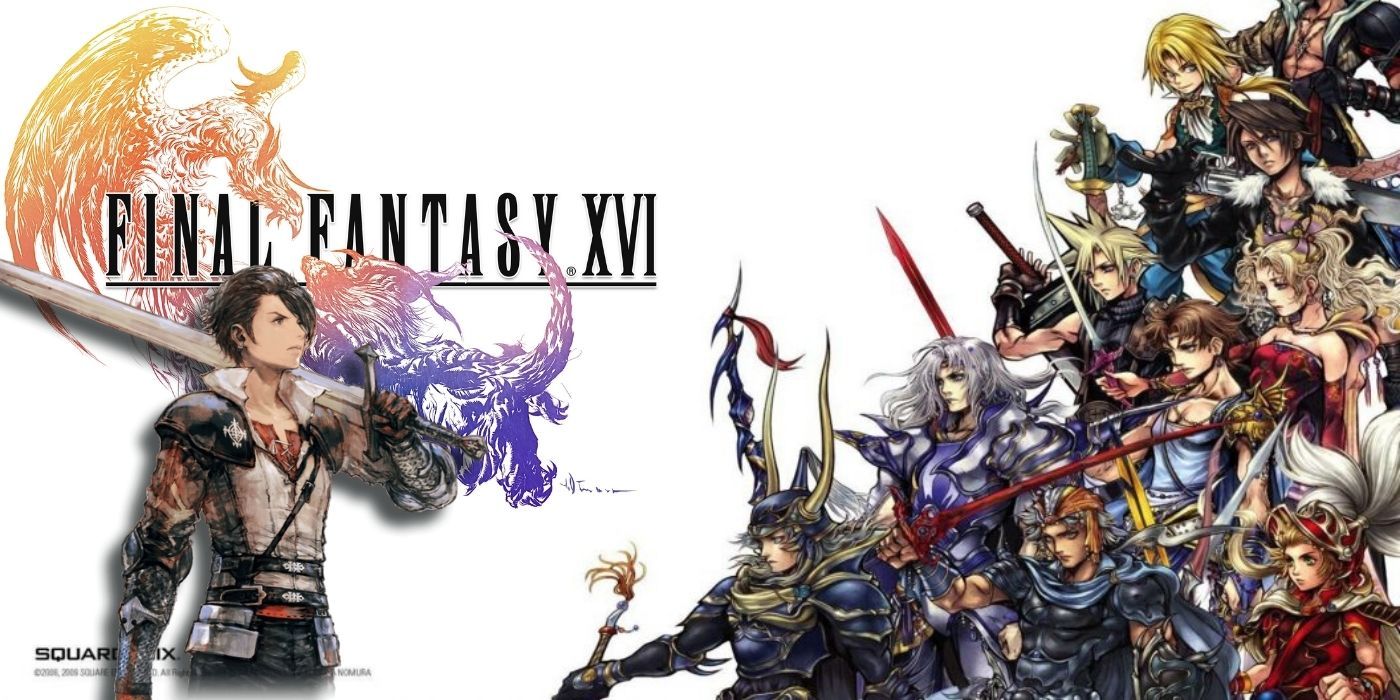
Many fans are eagerly awaiting more details about Final Fantasy 16, the next title in the storied JRPG franchise. Information has been revealed at a very slow pace since its announcement and first reveal trailer. The game has, as made clear by the reveal trailer and developer comments, a heavy focus on action in its combat system. This has been a common trend in JRPG games for more than a decade, as classic franchises move toward modern real-time combat. Fans are generally excited about Final Fantasy 16 but Square Enix needs to be careful about how it handles its focus on action gameplay to avoid alienating veteran fans of the traditionally turn-based series.
Purely speculative, but there seems to be a trend at Square Enix developing in how it is handling Final Fantasy both literally and spiritually. Since Final Fantasy 15 and its earlier incarnation, Versus 13, the mainline entries have started skewing towards action game fans. Spin-off titles like the recently announced Project Triangle Strategy and Bravely Default 2 carry on from Final Fantasy's roots while still innovating on the turn-based formula. This could prove to be beneficial for Square Enix, but it still needs to treat its mainline series with care for its RPG roots.
RELATED: Final Fantasy 16 Producer Explains Why Updates are Scarce

So far the gameplay that's been shown for Final Fantasy 16 seems like somewhat of a hybrid between FF15 and Devil May Cry. The new protagonist is shown teleporting across the battlefield and unleashing quick combos and powerful magic attacks. While it may be too early to tell, the trailer doesn't show any kind of HUD for the game, so fans have been left largely to speculate about what the game's systems might look like.
After Final Fantasy 7 Remake's near-perfect adaptation of the original's iconic Materia system, Square Enix has set a high bar for how FF16 might function. While many fans hope for a perfect blend of FF7 Remake and FF15, Final Fantasy 16 needs more than just a story mode to appeal to its classic fans.
Square Enix is more than up to the task, though. The gameplay in FF7 Remake did a great job of incorporating classic elements into a new framework that revolved around action. The fast-paced combat was juxtaposed with a tactical mode for controlling teammates that emulated older turn-based gameplay. FF7 Remake's progression system mimicked the original's in a way that emulated navigating the menus of the PS1 original while still feeling fresh. Final Fantasy 16 should expand on many of FF7 Remake's features in a way that feels fresh and unique to the new game.
FF16's progression needs to be more than just acquiring new moves similar to Devil May Cry. This isn't meant to be disparaging, many fans are excited about an injection of stylish combat to Final Fantasy, but the series should look at its roots and spinoff title Kingdom Hearts for inspiration. Versus 13 is likely still impacting FF16, and the gameplay is one area where that's evident. Taking notes on how to add RPG elements from its previous successes will be key for Square Enix. Effective implementation of elements that allow for customizing Clive's "build" will be important especially if it does end up he's the only playable character.
An expansive skill tree that allows players to direct their character's growth is a Final Fantasy trope that needs to show up in FF16. Games like FF12 and FF7 Remake give players the freedom to build a character around archetypes like support or pure attack in a way that is very satisfying for veteran RPG fans. If FF16 focuses too much on the combat without an interesting progression system behind that combat, many long-time players may feel like the game has been "dumbed down" to a degree.
This was a common complaint in Kingdom Hearts 3, which many feel also skewed away from its RPG roots to facilitate easier and more frequent action. The inclusion of a "story mode" difficulty does show that Square Enix is considering fans that don't want the emphasis of play to be purely on the game's combat.
RELATED: Final Fantasy 7 Remake Part 2 Needs to Address a Common Sequel Problem

Fantasy games are in a kind of renaissance right now, and part of that has been embracing both sides of the genre's history. Elaborate Dungeons & Dragons tactics are at the heart of many popular fantasy JRPGs, and the best action-RPGs still feature robust skill and item systems that work behind the scenes to expand on blisteringly fast combat. A skill system that allows players to design a version of Clive they want to play will go a long way for FF16. While swordplay will likely always be the focus of his moveset, a Final Fantasy protagonist mainstay, players should be free to create builds around what they like most in fantasy games at large, and Final Fantasy specifically.
If Clive ends up being the only playable character, support builds will be an obvious roadblock. However, imagining a playstyle that lets Clive stack different buffs on himself to focus on fewer but harder hits on enemies isn't out of the realm of possibility. A magic-centric build could create a ranged character that could be a blast to play still. Magic is always prominent in Final Fantasy, so Clive's capabilities should be no different.
Building incredibly powerful magic attacks into the combos was one thing that Kingdom Hearts 3 got right. A similar system similar to that, but with the ability to tweak specific focuses like ranged or AoE magic, could fit FF16's fast-paced gameplay well. Obviously, a series so widely loved inspires a lot of speculation in the absence of much information, but the possibilities for creating an engaging skill or progression system in Final Fantasy 16 are nearly endless.
The main reason why FF16 needs to nail its RPG systems is because of, not in spite of, its focus on action. Giving a wide variety of player choices to the gameplay would actually make that fast-paced action better. Kingdom Hearts and Final Fantasy can both learn from Devil May Cry while they refine their unique brand of action gameplay, but Final Fantasy 16 has a chance to do that and expand on those lessons with the things that make Final Fantasy unique.
Finding a way to mix character choice, magic, gameplay styles, and combat options through a progression system that stays faithful to classic Final Fantasy could see Clive become one of the most powerful and fun-to-play protagonists. Perhaps, even in a way that would make Dante from Devil May Cry jealous.
Final Fantasy 16 is in development for the PS5.
MORE: Final Fantasy 16's Clive, FF15's Noctis, and FF7's Cloud Really Show Off One Franchise Trend

